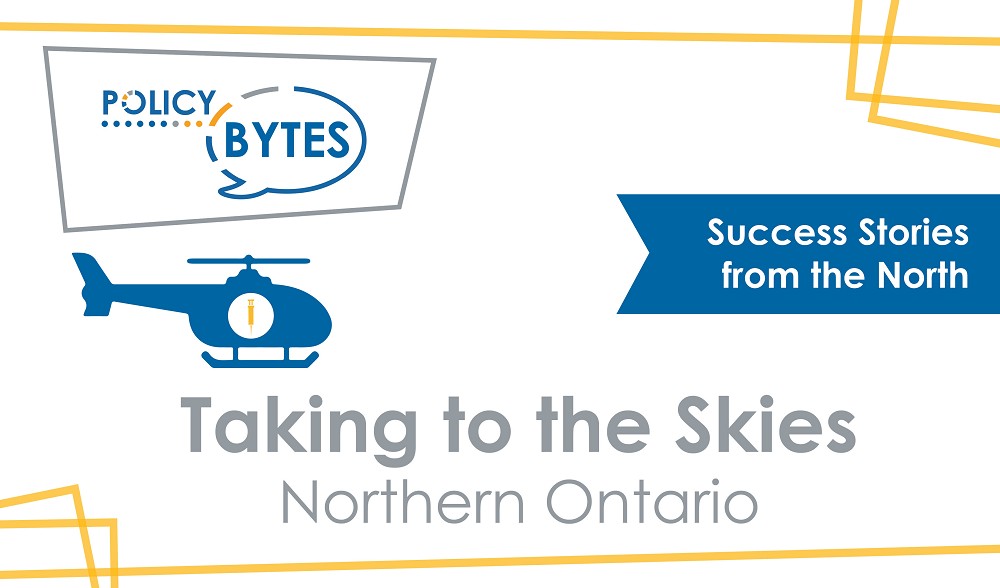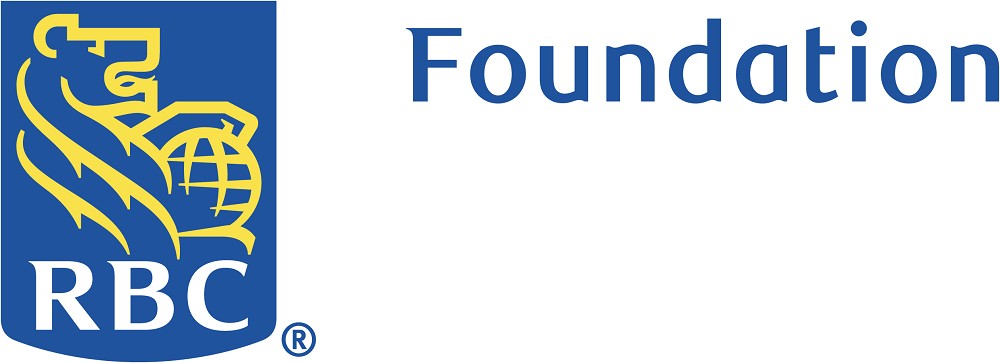Taking to the Skies: Vaccination Delivery in the Far North
June 2, 2021 - When the vaccine rollout began in Ontario, this brought up the age-old issue of accessibility in Northern Ontario. This was especially concerning for remote Far North communities with limited transportation options such as a winter road or air. However, as Operation Remote Immunity has shown, getting vaccines into the arms of FNMI is not impossible.

Starting in early February, Operation Remote Immunity was led by Ontario’s Ornge air ambulance service in partnership with Nishnawbe Aski Nation to provide vaccinations efficiently and effectively to 31 remote First Nation communities. Additionally, medical professionals from organizations across Northern Ontario such as Weeneebayko Area Health Authority, the Sioux Lookout First Nations Health Authority, the First Nations Inuit Health Branch, the Northern Ontario School of Medicine, as well as the University of Toronto and Queen’s University played roles on the vaccination teams.
Homer Tien, President and CEO of Ornge, details the success of the program as “a result of the strong and respectful partnership with First Nation leaders in developing a plan that addressed their needs.” By identifying eligible individuals and building trust in order to mitigate vaccination hesitancy, rollout was effective and is continuing to have a positive impact in participating communities.
Given significant research malpractices in the past, building trust was difficult, but essential to the vaccination process to ensure individuals and their families are protected. Through public health campaigns via radio in Cree dialects, social media influence, and providing familiar health resources such as local nurses, paramedics, elders, along with Orgne vaccinators, 25,000 doses of COVID-19 vaccinations were delivered.
The rate at which these vaccinations were delivered was very impressive and the results of these vaccinations allowed for the remote community of Neskantaga to hold their annual week-long spring carnival, demonstrating how elders and community leaders of First Nations communities (alongside medical support workers) were successful.
One of the key aspects to this program was that the vaccination clinics were led by the community based on their community’s requirements while Ornge helped to manage the logistical side of the house. This decision connects into a larger discourse about First Nations autonomy, whether it be related to governance or managing one’s own data, for example. Indeed, as the United Nations Declaration on the Rights of Indigenous Peoples outlines, Indigenous peoples have a right to self-determination, which not only involves the free pursuit of economic, social and cultural development, but a right to autonomy of local and international affairs too.
Operation Remote Immunity exemplified the tremendous efficiency of community leaders and community members to operate at a highly effective rate in both making vaccinations available as well as increasing the number of people vaccinated. And to continue the work of this program, it was announced at the end of May that there will be an Operation Remote Immunity 2.0, which will provide vaccinations to youth in over 24 communities, as well as those who were not able to be vaccinated during the first initiative.
Overall, while accessibility in the North is a challenge, it is certainly not impossible to overcome.
Andrew Jalak is a Communications Officer at NPI.
Thank you to our Experience North Sponsor 
The content of Northern Policy Institute’s blog is for general information and use. The views expressed in this blog are those of the author and do not necessarily reflect the opinions of Northern Policy Institute, its Board of Directors or its supporters. The authors take full responsibility for the accuracy and completeness of their respective blog posts. Northern Policy Institute will not be liable for any errors or omissions in this information, nor will Northern Policy Institute be liable for any detriment caused from the display or use of this information. Any links to other websites do not imply endorsement, nor is Northern Policy Institute responsible for the content of the linked websites.
Northern Policy Institute welcomes your feedback and comments. Please keep comments to under 500 words. Any submission that uses profane, derogatory, hateful, or threatening language will not be posted. Please keep your comments on topic and relevant to the subject matter presented in the blog. If you are presenting a rebuttal or counter-argument, please provide your evidence and sources. Northern Policy Institute reserves the right to deny any comments or feedback submitted to www.northernpolicy.ca that do not adhere to these guidelines.
